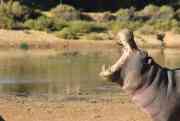The Complete African Safari Medical Guide
So you’re coming on a safari in Africa? Our consultants often deal with clients who are anxious about various medical concerns before their trips, so we’ve put together this comprehensive blog, which deals with pretty much any health/medical questions you may have regarding your trip into southern and East Africa.
While Africa is wild and wonderful, it is, like anywhere, full of potential medical dangers. With some good planning and a few simple preparations, you can ensure a hassle- and sickness-free trip of a lifetime.
Article Section Quick Links
- Medical Insurance
- Vaccinations
- Traveller’s Diarrhoea
- Bilharzia
- Malaria
- First Aid
- Chronic Medications
- Machines Needing Electricity
- Over 65 Medical Certificates
- Sun Stroke & Heat Stroke
- Altitude Sickness
- HIV / AIDS
IMPORTANT NOTE/DISCLAIMER: This is a general, basic overview. Before travelling to Africa, every person should visit their own doctor or local travel clinic, well in advance of their departure, to obtain advice. Each person is different, has different underlying conditions, allergies, etc., so a pre-trip health check and discussion of what vaccines, malaria prophylaxis are necessary, and other health concerns, is imperative.
This blog does not replace the advice of your doctor/travel nurse.
Medical Insurance
Before coming on safari, be sure to get good medical insurance, including medical evacuation. Many areas visited are far from medical facilities and difficult to reach. Should there be a medical emergency, you want to feel safe in the knowledge that your insurance will cover any eventuality.
For everything insurance-related, read our full blog on the subject.
Vaccinations
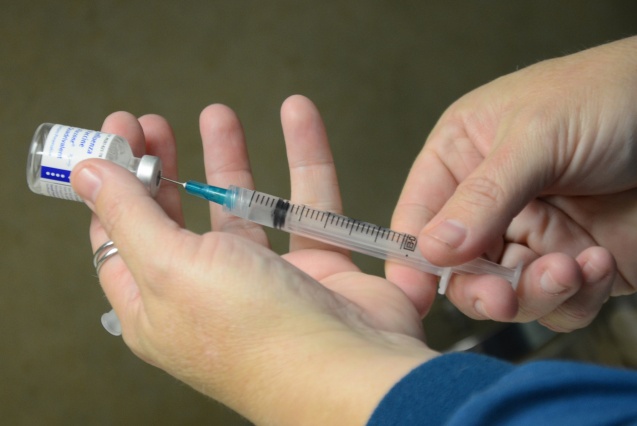 Vaccine by KOMUnews
Vaccine by KOMUnews
The most important thing about vaccinations is to get them well in advance. Many vaccines take a while to work e.g. yellow fever, which must be given at least 10 days before entering an endemic area. Others require a series of injections e.g. hepatitis A and B.
Primary vaccinations, which in most countries include tetanus, diphtheria, whooping cough, measles, mumps, rubella, polio, TB and meningitis, must be up to date. Boosters may be necessary, so be sure to discuss these with your medical practitioner well in advance of travel.
The only vaccine that is officially required in some African countries is the yellow fever vaccine, in endemic areas (or if you’re travelling through an endemic area, even just as a layover). Without your certificate of vaccination, more than 10 days prior, there’s a real possibility that you will not be allowed into the country, or that you will be quarantined and vaccinated.
See our blog, for a full explanation on yellow fever.
The question of which other vaccinations to get is a very difficult one to answer and depends on many factors including:
- Your immunisation status, i.e. are your ‘normal’ vaccinations up to date
- Age
- Current health
- Which countries you’re visiting
- Any current epidemics, e.g. cholera, typhoid, polio or measles, that may require vaccination or booster vaccinations
- Your planned activities, e.g. if you’re going to be in contact with unbottled water/unwashed food in endemic countries, it may be wise to get cholera and typhoid vaccinations etc.
Each preventable disease has different methods of transmission and different risks (again, multi-factorial). Risks differ from country-to-country and moment-to-moment, so check with both the Travel Clinic and Embassy with regard to any disease outbreaks in the countries you’re visiting, well in advance.
Mode of Transmission
Mode of transmission is one of the major factors to consider when choosing which vaccinations to get. Here, we summarise routes of transmission of the most common diseases against which you can vaccinate.
- Water/food-borne: cholera, hepatitis A, typhoid
- Person-to-person, air-borne: diphtheria, influenza
- Infected blood/blood products/bodily fluids: hepatitis B
- Saliva of infected animal: rabies
- Contamination of cuts/burns//bites: tetanus
Vaccination Summary
So, in conclusion, the vaccinations you choose to get mainly depends on you, in consultation with your medical practitioner, taking into account your medical history and your risk, based on countries visited and current outbreaks. Only yellow fever is required, the rest are just recommended.
For more details see Getting your shots: Vaccinations needed for your African Safari
Water
 Water by Derek Gavey
Water by Derek Gavey
Many infectious diseases can be avoided by very simple methods. Drink bottled water or water sterilised at the lodge you’re staying at. Remember, too, that this applies to ice in your drinks – an absolute necessity in the African heat – make sure that it’s also made from clean water!
When eating fruit or vegetables bought at local markets, preferably go for those that you can peel and throw the peels away. Otherwise, wash everything with sterile/bottled water before eating.
Traveller’s Diarrhoea
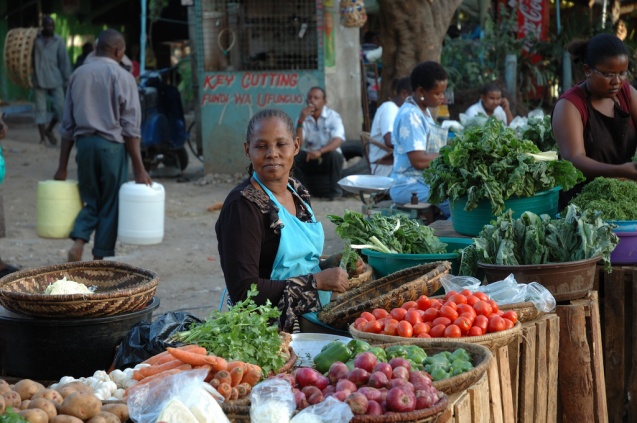 Market, Kenya by Mauro Eugenio Atzei
Market, Kenya by Mauro Eugenio Atzei
The most common ailment affecting travellers on safari is diarrhoea. This is usually caused by drinking unpurified water, unwashed fruit/vegetables or food. Following the points above, with regard to bottled water (and ice!), carefully washing all foodstuff etc., will minimise the risk of tummy problems.
Pack an anti-diarrhoeal and ask your doctor for an antibiotic, just in case.
Bilharzia
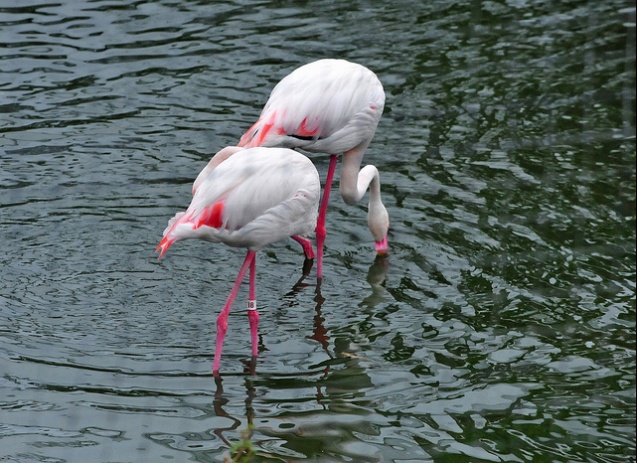 Flamingos wading by Heather Paul
Flamingos wading by Heather Paul
The risk of bilharzia exists in some areas. This disease is transmitted by tiny parasites that penetrate the skin and live in contaminated fresh water, such as dams. Before swimming in any fresh water in Africa, ask if it’s a bilharzia area.
Malaria
 Mosquito by Keith
Mosquito by Keith
One of the major medical concerns on safari and a real risk in many of the countries visited on ABS safaris. Malaria, however, is largely preventable using both non-drug measures and medical prophylaxis in combination.
For everything malaria, check out our blog on this mosquito-borne disease.
If you’re concerned about malaria, or at high risk due to underlying medical conditions, fear not: there are plenty of safari options that don’t go into malaria-endemic areas or only into areas with a low risk of malaria at certain times of the year (like Kruger, in winter). Chat to one of our ABS consultants and they’ll point you in the right direction.
Basic First Aid Kit
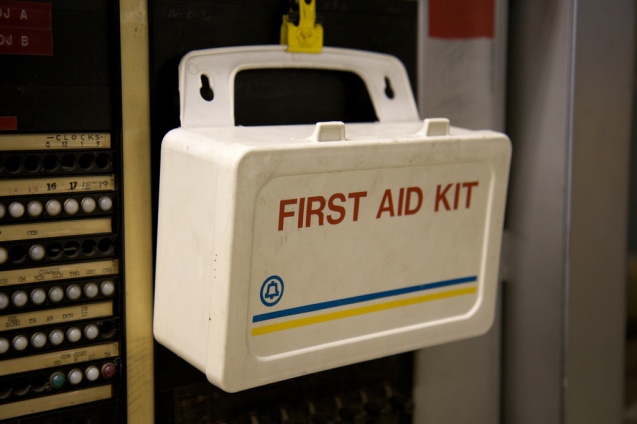 First Aid Kit by Marcin Wichary
First Aid Kit by Marcin Wichary
Beside your malaria prophylaxis and vaccinations, it’s wise to carry your own First Aid kit. Keep in mind that you’ll be adventuring off the beaten track, into beautifully wild Africa. There are no pharmacies around-the-corner in the Serengeti, so bring the basics with you. Depending on the type of trip you’re going on – overland truck versus luxury lodge, and everything between – this kit can be expanded on or made smaller. Most overland trucks have a basic first aid kit on board and lodges also keep basic medical supplies.
It’s always good, however, to have your own little bag of supplies, to treat any pesky ailments that may occur. We suggest at least:
- Sunscreen – lots of it. And a hat (on your head, not in the First Aid kit)
- Headache tablets
- Anti-nausea tablets
- Anti-diarrhoeal
- Rehydration sachets
- Plasters, bandage and blister pads
- Alcohol swabs
- Gauze pads
- Rubber gloves
- Antiseptic cream
- Insect repellent
- Burn shield
- Antihistamine tablets and cream
- Antibiotic for Traveller’s Diarrhoea
- Iodine tablets to treat water
- Epipen®, if you suffer from any life-threatening allergy
- Tweezers
Chronic Medications
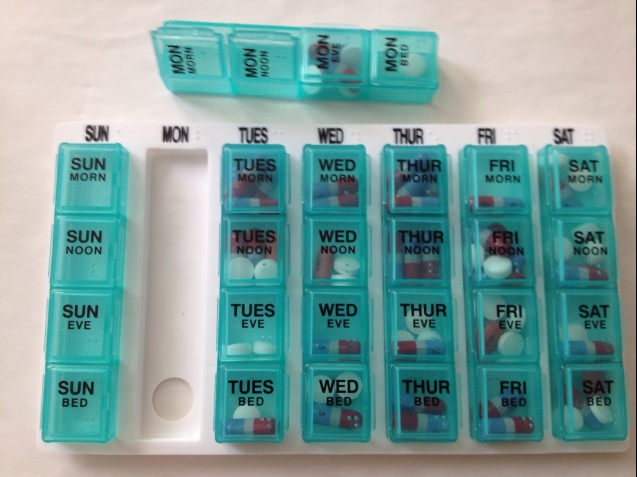 Chronic medication by tr0tt3r
Chronic medication by tr0tt3r
Most important: bring sufficient quantities of your chronic medication. Africa can be wonderfully unpredictable – a huge thunderstorm may cause the road to be inaccessible, extending your safari by a couple of days – so come prepared and pack extra, in case.
While medical facilities in metropolitan areas are good-to-excellent, some medications that are easily obtainable in your country of origin may not be available here. Always bring a copy of your prescription, with the generic ingredients of all medications on it, just in case.
Machines Needing Electricity
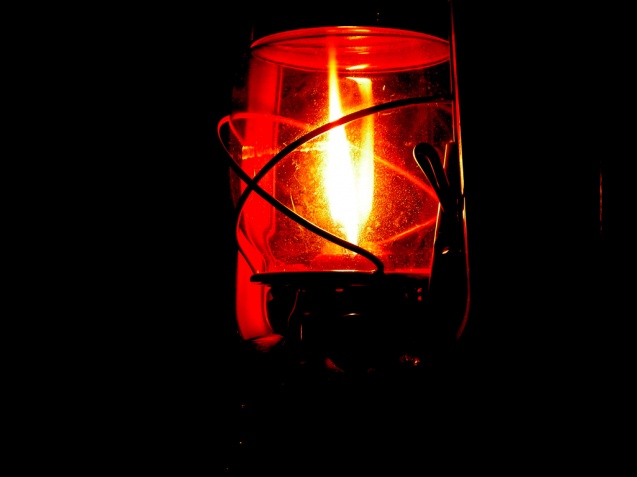 Hurricane lamp by Matt Gibson
Hurricane lamp by Matt Gibson
Many lodges in the more remote areas of southern and East Africa do not have electricity (and, obviously, campsites). Some run purely on solar power, while others make do with gas for cooking and lanterns, candles and torches at night.
This is fabulous for making sure that no light pollution affects the incredible African night sky, but can be problematic for anyone who needs electric-powered medical equipment, like sleep apnoea machines. Some areas may also have electricity but experience regular power cuts.
Again, with some forward planning, we can organise a lodge safari to an area which has reliable electricity and back-up generators, should that be required. Speak to our ABS consultants and they can suggest the best options.
Over 65 Medical Certificates
__medium.jpg) Woman by Toon van Dijk
Woman by Toon van Dijk
Some safaris – mostly the ones requiring a fair amount of participation and/or physical exertion – require the more mature (> 65 years old) traveller to present a certificate of good health from their doctor. This is both to protect you, the traveller, and the tour operator, so check before booking your safari.
Heat Stroke / Sun Stroke
 Namibia by Panoramas
Namibia by Panoramas
Heat Stroke – often also called Sun Stroke – occurs when the body temperature reaches 40°C. It results from prolonged exposure to heat, often combined with not drinking enough (dehydration) and, is an extremely serious disease, requiring emergency medical treatment.
Africa, especially in the summer months, can be extremely hot, with daytime temperatures in some regions reaching into the high 30°Cs and well into the 40°Cs. It can be uncomfortable-to-dangerous, especially to those whose bodies are used to cooler climates.
There are a number of ways to minimise your risk of Heat Stroke:
- Always wear a hat (and sunscreen)
- Clothes should be loose-fitting, lightweight, light-coloured, and made of natural fibres
- Water, water, and more water (or fruit juice). When excessively perspiring, drink an electrolyte-rich drink in amongst the water, to replace lost electrolytes
- Only go out during the cooler parts of the day i.e. dawn/early morning and late afternoon/dusk. Most safaris follow this schedule for their game drives too, as the animals rest during the heat of midday, as humans should
- Don’t book your safari in midsummer
N.B. Should you develop any symptoms of Heat Stroke – high temperature, altered mental state, racing heart, headache, hot dry skin or altered sweating, flushing, shallow/rapid breathing, nausea and vomiting – tell your tour guide immediately.
Altitude Sickness
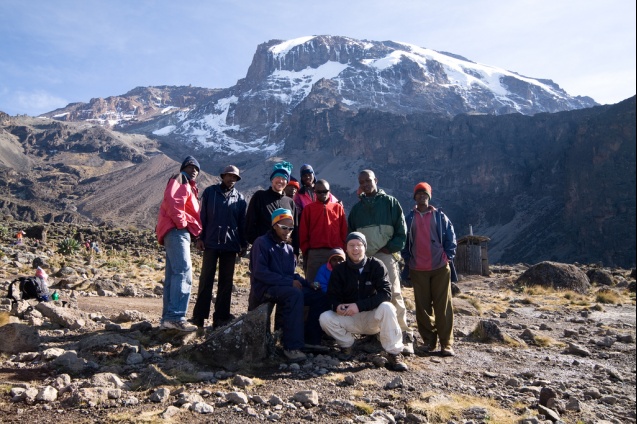 Kilimanjaro by Stig Nygaard
Kilimanjaro by Stig Nygaard
This is mainly a concern when climbing Kilimanjaro. There is the very real risk of Altitude Sickness (also called Acute Mountain Sickness, or AMS) due to the short time period and rapid ascent. As you ascend to greater altitudes, the air gets ‘thinner’. Basically, there’s less oxygen and air pressure is lower. This leads to increased respiratory rate and may, in extreme cases, lead to pulmonary and/or cardiac oedema (build-up of fluid in the lungs and/or heart), which can be fatal.
There is no way to predict whether or not you’ll suffer from AMS. The main way of preventing it is to ascend relatively slowly, giving your body time to acclimatise. If you start developing symptoms, which include headache, nausea, lack of appetite, increased pulse rate, insomnia, swelling of the hands and feet, reduced urine output and weakness or exhaustion, the guide needs to be notified immediately. Descending to a lower altitude can reverse AMS in its beginning stages.
Other measures to minimise the risk of AMS include:
- Maintain a slow and steady pace from day one i.e. ‘climb high, sleep low’
- Include an extra day for acclimatisation
- Drink plenty of water while climbing
- Preventative medicine is available and may be considered. Consult your doctor before leaving
For all things Kil-related, see our blog on climbing Kilimanjaro.
HIV/AIDS
 AIDS ribbon by NIAID
AIDS ribbon by NIAID
Sub-Saharan Africa has the highest HIV prevalence in the world. Transmission can be minimised with a few, simple, precautions:
- Condoms! This is a non-negotiable, not only for HIV, but also for other sexually transmitted diseases, and unplanned pregnancies. Be sure to pack enough of them. And some extra
- Pack a couple of pairs of surgical gloves in your baggage, in case there’s an occasion where you’re dealing with potentially-infectious body fluids
- Educate yourself on how HIV is transmitted etc. Knowledge is power
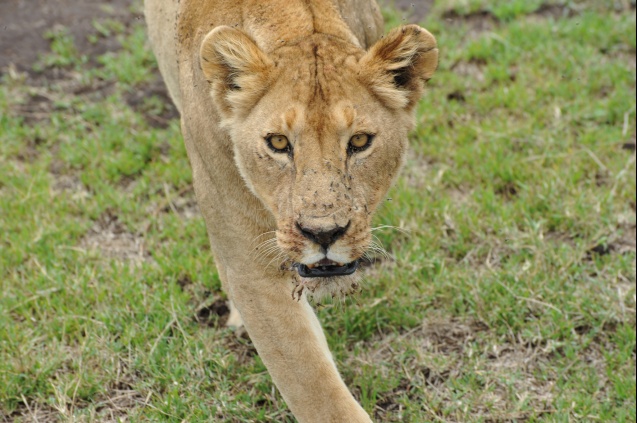 Lion by Tammy Alairys
Lion by Tammy Alairys
Basically, come prepared, and you can be sure to have a hassle-free, healthy safari and take home only good memories of your trip of a lifetime!
IMPORTANT NOTE/DISCLAIMER: This is a general, basic overview. Before travelling to Africa, every person should visit their own doctor or local travel clinic, well in advance of their departure, to obtain advice. Each person is different, has different underlying conditions, allergies, etc., so a pre-trip health check and discussion of what vaccines, malaria prophylaxis are necessary, and other health concerns, is imperative.
This blog does not replace the advice of your doctor/travel nurse.
Talk to our knowledgable travel consultants for health and safety advice.
If you liked this post, these trips cover similar ground…
- 8 Day South Africa Safari - Garden Route to Cape Town Tour
- 5 Day Cape Town, Garden Route & Addo Safari (Backpacking Tour)
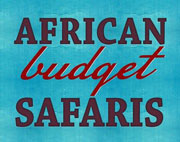

 Briony is a qualified pharmacist, published author and travel blogger living in Cape Town. She writes her own blog about travel, the arts, music and the good things in life, with a focus on accessibility. She likes watching the world go by, and sometimes it makes her nose twitchy, but mostly it provides golden nuggets with which to light up the page.
Briony is a qualified pharmacist, published author and travel blogger living in Cape Town. She writes her own blog about travel, the arts, music and the good things in life, with a focus on accessibility. She likes watching the world go by, and sometimes it makes her nose twitchy, but mostly it provides golden nuggets with which to light up the page.




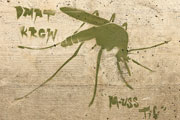




 Great find! Six fun and informative travel infographics offering a snapshot of each of these Southern African countries: Namibia, Botswana, Zimbabwe, Zambia, Malawi and Mozambique. See what two adventurous souls found on their Southern African adventure.
Great find! Six fun and informative travel infographics offering a snapshot of each of these Southern African countries: Namibia, Botswana, Zimbabwe, Zambia, Malawi and Mozambique. See what two adventurous souls found on their Southern African adventure.
